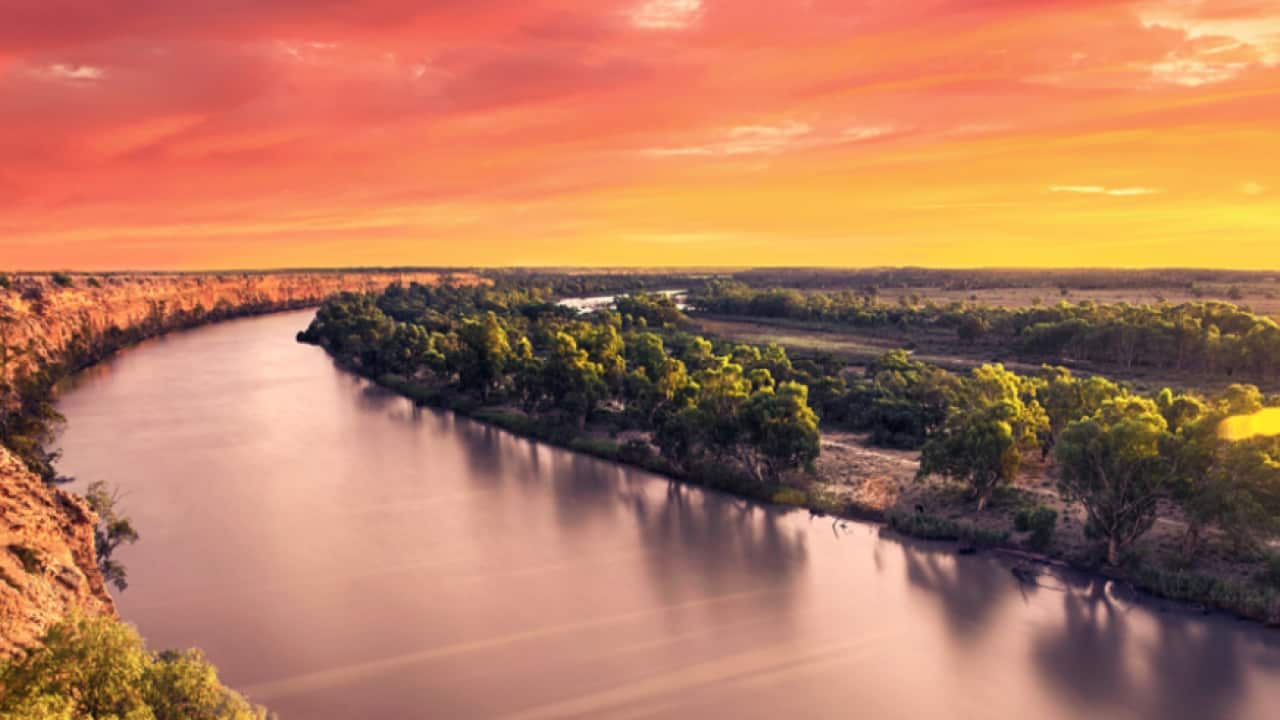Fish scientists, relevant state representatives and water holders met with the Murray Darling Basin Authority in Canberra yesterday to discuss the likelihood of more mass fish kills and the appropriate management of the Basin’s river system in the months ahead.
However, an Aboriginal Traditional Owner of lands surrounding the Darling River said he had neither been informed of the meeting or received an invitation to participate in it.
William ‘Badger’ Bates, an Elder of the Barkandji and a director of the Prescribed Body Corporate, was surprised to learn of the meeting when contacted by NITV News.
“This is what happens all the time,” he said. “They should be taking a bit more notice of us. My people have the Native Title.”
Mr Bates, who was travelling to Wilcannia from the Menindee Lakes area to inspect a weir when contacted, said the Barkandji had been repeatedly excluded from meetings convened by the Murray Darling Basin Authority (MDBA) and overlooked by relevant state and federal ministers.
In 2015, the Federal Court recognised the rights of the Barkandji peoples to 128,000 square kilometres of land in western New South Wales, which includes land on both sides of the Barka, or Darling River, for nearly its entire length.
It is the largest Native Title determination in the state, running from the south-west NSW border with Victoria, north to the town of Wanaaring in the state’s north-west.
New South Wales Aboriginal Land Council CEO, James Christian, said representatives from the council had not been invited to the meeting either.
In a statement provided to NITV News, Mr Christian said governments had not done enough to address “the ongoing mismanagement and degradation of the Murray Darling system.”
“The current arrangements are not delivering social and cultural outcomes for Aboriginal people or our environment,” he said.
“Our Council’s top priority right now is to support the people most affected by the crisis. Our Chairman is currently in Menindee and Wilcannia where he has been invited by local Aboriginal Land Councils to inspect first-hand the devastation caused by the mismanagement of the river system.”
In response to inquiries from NITV News, the MDBA said on Tuesday that the meeting was not a community meeting and that no industry, environmental or Indigenous groups had been invited.
The independent authority said the meeting was “for state and territory government officials – including environmental water holders, river operators, government fish scientists and water policy officials from NSW, Victoria, South Australia, Queensland and the Commonwealth.”
Meanwhile, NSW water minister Niall Blair has said he wanted to make a point of how common fish kills were by visiting Lake Hume on the New South Wales - Victoria border yesterday.
Initially, the minister announced a fish kill of 1,800 at the lake before it was revealed that only 60 carp were involved.
Last week, it is estimated over one million native species of fish died along a 40 kilometre stretch of the Barka-Darling River around Menindee in a mass fish kill event that government officials have attributed to natural conditions caused by dying blue-green algal blooms sucking the oxygen out of available water.
Critics of the MDBA have claimed the fish kill was due to sustained mismanagement of the river system.
At Lake Hume, Mr Blair said the NSW Government would deploy 16 aerators to restore oxygen to the Barka-Darling River. The aerators will be solar-powered and operate day and night, said the minister.
Professor of Environmental Science at UNSW, Richard Kingsford, said aerators can only service a tiny part of the 1470km river.
“Aerators won’t do much,” he said. “There will be other fish kills, but the magnitude of this one is the problem.
“Algal blooms flourish when rivers stop flowing,” Prof Kingsford told NITV News.
“Flows in the Darling River have declined by about half as a result of irrigation development upstream. This means that the drought effects with over development are the main long-term cause.”
On Monday, the federal minister for water David Littleford said the government had offered NSW any assistance it requires to respond to the incident, and to rebuild fish stocks when it rains.
“The reality is we’re in a serious drought and the only silver bullet is rain,” he said.











